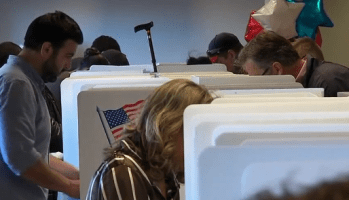(INDIANAPOLIS) – Indiana software companies are warning they’ll face real-world costs if legislators don’t pass a hate crime bill.
The Indiana Technology and Innovation Association, formed four months ago to lobby for the tech industry’s interests, says many of its 100 members are still getting blowback from the controversy four years ago over the Religious Freedom Restoration Act. Fishers-based Memory Ventures and Zionsville’s Clear Software both say they lost top executives over RFRA. and other companies say they’ve been turned down by lenders or venture capital firms who still have a negative view of Indiana.
ClearObject CEO John McDonald says Hoosier businesses are in “a deathmatch” with other states for top talent. He contends not passing a hate crime bill would be “a second black eye,” compounding the damage from RFRA.
McDonald says the version passed by the Senate, which deleted a list of commonly targeted victim groups, would be meaningless and unenforceable. Governor Holcomb has been pressing for a bill with a list, and called last week for grassroots pressure on legislators. McDonald says he’s heard legislators argue hate crimes aren’t an issue in their districts. He says businesses need to send the message it’s hurting their ability to fill openings.
While the association is emphasizing the business importance of the bill, Selfless.ly CEO Josh Driver says passing it would have a practical impact as well. He says many hate crimes go unreported, and predicts provisions requiring police to keep track of hate-based attacks would help paint a truer picture.
Legislators quickly passed a followup bill in 2015 to tamp down the RFRA controversy. Even though the tech association maintains that bill failed to restore Indiana’s reputation, they argue a hate crime bill would show the world Indiana is serious about welcoming everyone, while passing a weakened version would send the opposite message.
The bill doesn’t create a new crime, but would allow judges to use prejudiced motives as a reason for imposing sentences at the high end of Indiana’s guideline ranges.
(Photo: Eric Berman/WIBC)













